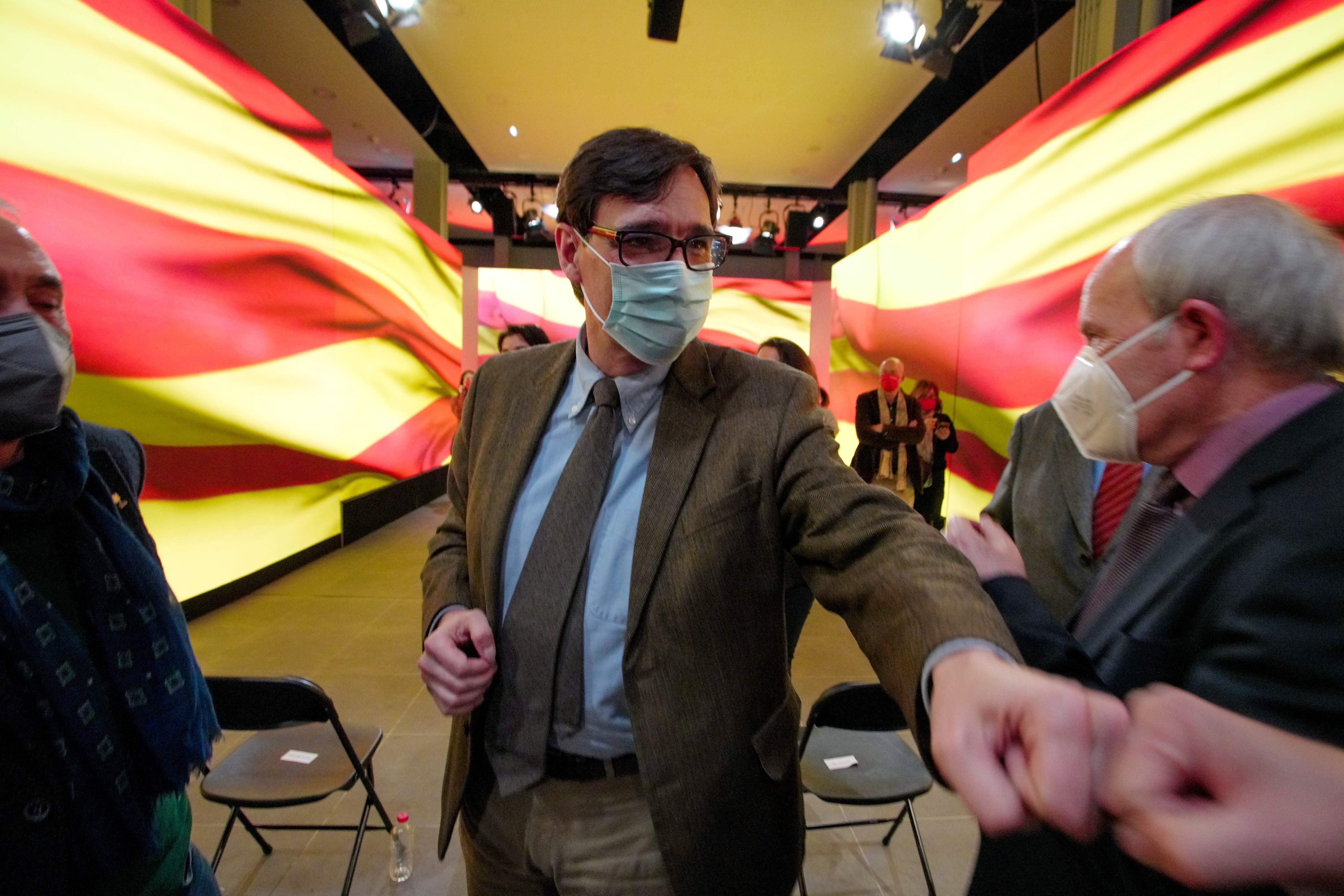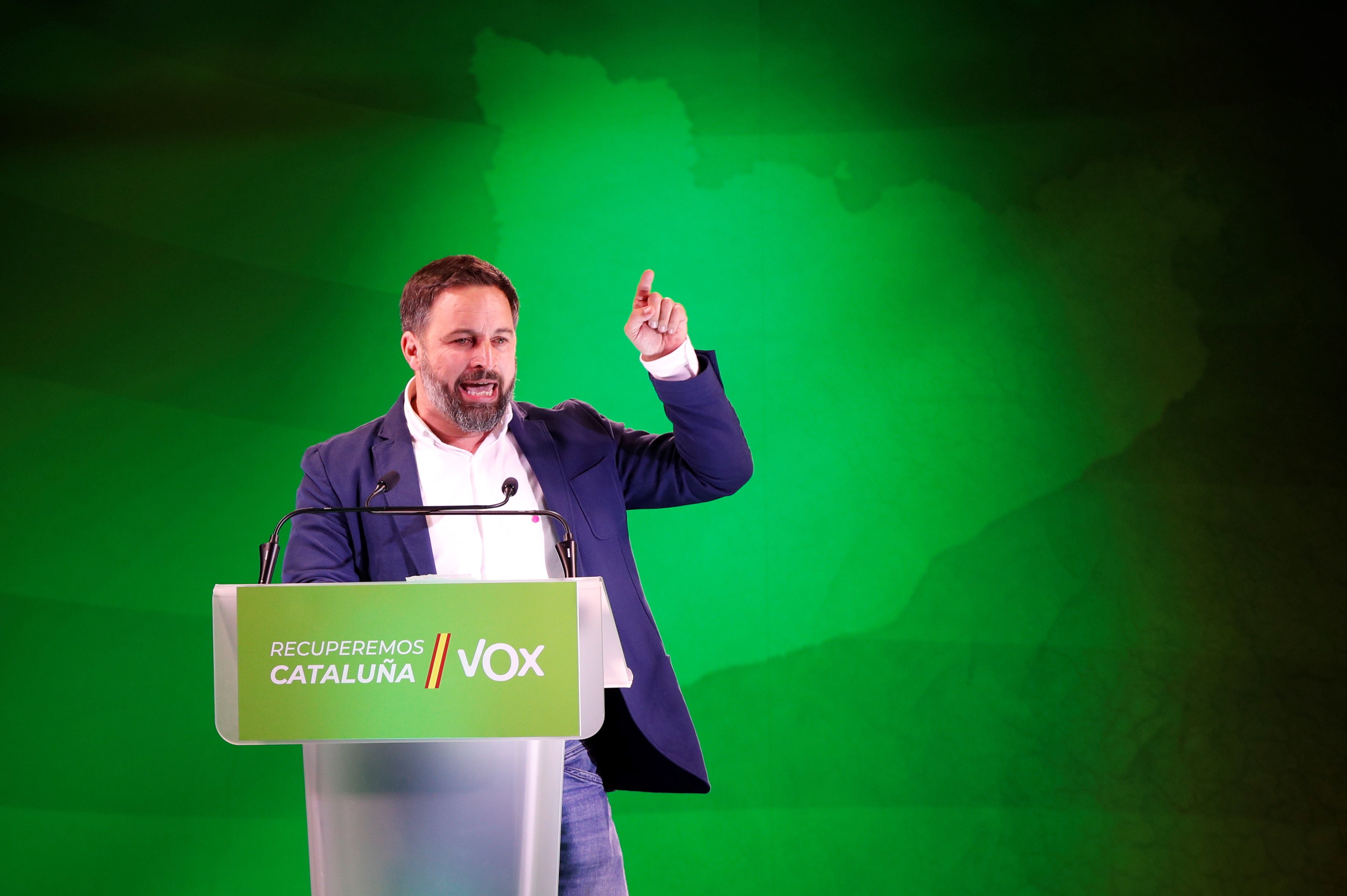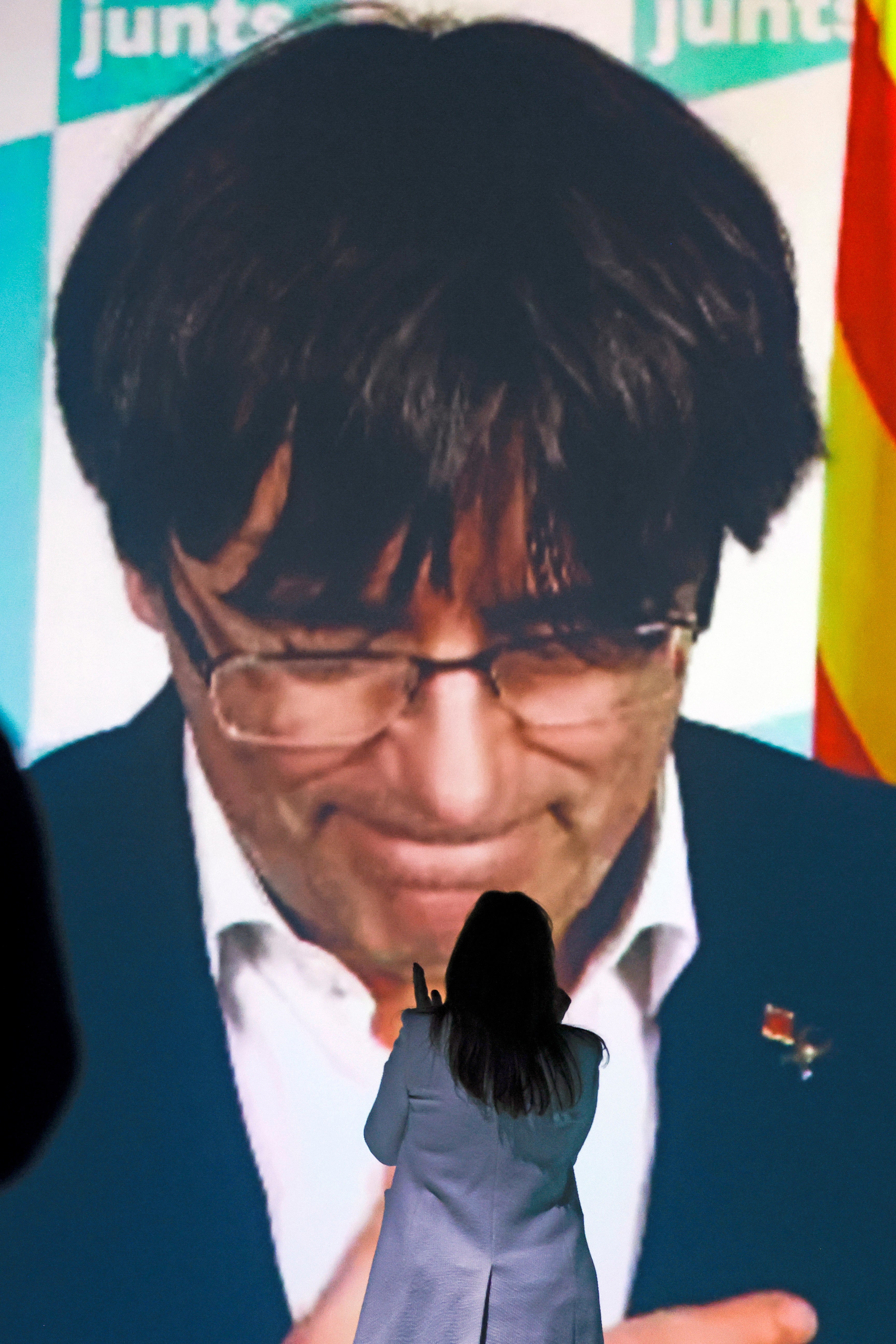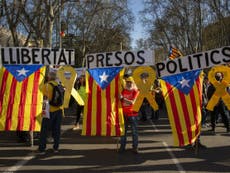Catalonia votes as coronavirus concerns look set to dampen independence push
The far right could make gains in a vote likely to stall separatist ambitions and watched with keen interest across Europe, reports Graham Keeley in Madrid


Voters in Spain’s politically volatile Catalonia go to the polls on Sunday in the first regional election since 2017 when a failed independence bid threatened to tear the country apart.
Three years after an unconstitutional referendum and the unilateral declaration of independence that led to long jail terms for nine Catalan political leaders, separatists hope the result will revive their cause and allow them to claim more than 50 per cent of the vote for the first time.
And in the midst of the Covid-19 pandemic, Spain’s Socialist prime minister Pedro Sanchéz has gambled by pitching his health minister as a candidate to try to oust pro-independence parties who have held power for a decade in the wealthy region.
Polls suggest Salvador Illa, who has been the public face of Spain’s fight against coronavirus, may win the most votes but this would not guarantee he will be able to govern a volatile region which accounts for 20 per cent of Spanish GDP.
The result will have repurcussions elsewhere. Brussels will be watching the outcome with interest as Catalonia is a key European regional powerhouse and political stability would aid Spain’s economic recovery from the pandemic.
Healthcare and the economy have eclipsed independence as the main issues at a time when Spain passed the milestone of three million coronavirus cases this week. More than 9,000 of Spain’s 64,000 confirmed deaths were from Catalonia, making it the second hardest-hit region.
Turnout is likely to be low as voters fear catching Covid-19, while volunteers manning polling stations have been threatened with hefty fines if they do not turn up to do their civic duty.
After the failed attempt to split from Spain in 2017, Catalonia’s separatists are looking for potential inspiration from the Scottish Nationalist Party, who are on course to winning a large majority in May’s Scottish parliamentary elections.
The SNP hope the unpopularity of UK prime minister Boris Johnson, Brexit and the pandemic fuelling pro-independence will help its push for a second referendum.
However, unlike the SNP, Catalan nationalists who currently govern the region in an unlikely alliance between three parties, have achieved little in the past three years and support for their cause appears to be waning.

A poll forLa Vanguardia newspaper last month found support for splitting from Spain had fallen to 43 per cent from 45 per cent in September, while 49 per cent opposed independence, up from 47 per cent in the previous poll.
Paco Fernández and his wife Mari Carmen sum up the dilemma facing Catalans.
“I was born here but feel Spanish as well as Catalan so I don’t support independence whereas my wife is in favour of it. We try to avoid the subject,” said Mr Fernández.
Meanwhile, the regional election promises another surprise with surveys suggesting the far-right Vox party is on course to win between nine and 11 seats in the 135-seat regional parliament.
Vox, which is the third largest party in Spain’s national parliament with 52 seats, has thrived on its anti-nationalist rhetoric, proposing that pro-independence parties should be banned and illegal migrants should be deported in a region with a large Muslim population mostly made up of Moroccans.
If the far-right gains a toehold in Catalonia, it will further polarise a political situation in which bitter divisions over the independence issue have split society.
Mr Illa, a Catalan who is a doctor of philosophy, has taken a narrow lead in polls throughout the campaign, but has ruled out any alliance with centre-right parties which also oppose independence.
This means the 54-year-old may have to strike an uneasy alliance with the moderate, pro-independence Catalan Republican Left (ERC) and the far-left We Can.
So far he has struck a conciliatory tone.
“We want to move on from the past and division. We want to open a new era in which politicians are public servants concentrating on three issues: health and the vaccine programme, economic recuperation and making sure no-one is left behind,” he said.

Raul Romeva, the former Catalan foreign minister who was jailed for 13 years in 2019 for sedition and embezzlement of public funds in connection with the failed independence bid, said his party, ERC, would not do a deal with the Socialists.
“There is no way we will support a Socialist government or abstain in their favour,” he told The Independent.
He insisted for five million Catalan voters, independence was the main issue.
“There is a clear majority of 80 per cent who want to resolve this question whether they are for independence or not through a political solution,” he said.
Like other jailed Catalan political leaders, Mr Romeva has been released from prison to join the election campaign during the day between Monday and Thursday but must return to the jail at night and can see their families at the weekend.
The issue of imprisoned politicians and other separatists who fled abroad in 2017 is another running sore but Spain’s government has hinted it may grant them pardons.
Four separatist parties signed a manifesto promising not to form a government with the Socialists.
However, at a national level, the ERC has helped prop up the left-wing coalition government of the Socialists and the far-left United We Can which lacks enough votes for an absolute majority.
Oriol Bartomeus, a political expert from the Autonomous University of Barcelona, said separatist parties claimed to be against a Socialist breakthrough but he believed this was a political bluff.
“There are divisions between the pro-independence parties so this manifesto was to try to reassure voters ahead of the real election,” he said. .
“Sanchez took a gamble which may pay off. In reality there are only two outcomes. Either the separatists form a government or the Socialists do with the help of the far left and ERC.”




Join our commenting forum
Join thought-provoking conversations, follow other Independent readers and see their replies
Comments